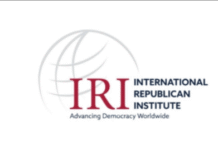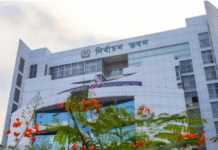This is a classic case of inertia, a case that clearly shows how things move in government offices.
In 2010, the government planned to dredge and make the country’s vast waterways navigable in 10 years.
Accordingly, Bangladesh Water Development Board (BWDB) was given the mandate and the money to buy 21 dredgers, nine tug boats, two inspection boats and other dredging equipment by 2012.
The Tk 1,309-crore project has already overrun by five years, but the implementing agency could not complete the procurement.
Keeping the silted up rivers navigable should have been a priority for Bangladesh, whose river system carries almost a fifth of the world’s yearly sediments.

But after three extensions since the original project deadline ended in 2012, the BWDB has so far managed to procure only five dredgers, and nothing more. It is now seeking a three-year extension to buy the rest 16 dredgers and the 11 tug and inspection boats.
The planning ministry itself labelled the project — Dredging the Rivers of Bangladesh and Purchasing Dredgers and Necessary Equipment — as one of the slowest ever.
When the government conceived the project, the plan was to make the river system navigable in 10 years. It is exactly the number of years the BWDB is taking to complete the procurement alone.
In the meantime, some of the major river systems are badly suffering from siltation and monsoon flood, causing huge crop loss and bringing immense miseries on millions living on the banks of overflowing rivers. The country currently can dredge a sixth of its yearly dredging requirements.
As BWDB officials continue to blame the slow tender process and non-response from competent bidders, the planning ministry wrote to the water resources ministry in June, requesting it to expedite the procurement process.
In 2009, Bangladesh Inland Water Transport Authority (BIWTA) submitted a report to a parliamentary committee, depicting the drastic shrinkage of the country’s waterway network for a lack of dredging.
Bangladesh is crisscrossed by a network of 24,000km of rivers, canals, creeks and haors. During monsoon, 5 million cusec water and 2.4 billion tonnes of silt flow through its rivers. The world’s entire river system carries 13 billion tonnes of silt a year, said the report.
The underlying emphasise was the rivers must undergo a large-scale dredging so that tonnes of silts cannot deposit on riverbeds, crops are not damaged, lives are not lost in floods and waterways do not shrink any further.
The very next year, the government approved the project. But seven years on, a post-inspection implementation status report by the planning ministry said the progress is disappointing.
In August 2012, the project deadline was extended till June 2014. Again, there was not much of a progress and the new deadline was set for June 2016. The BWDB missed that deadline as well and got a third extension till December last year.
Late last month, the planning ministry sat with BWDB officials to discuss the project.
At the meeting, BWDB officials said it was taking them this long as they had to float international tenders and those had to be cancelled time and again as they did not get expected response, sources said.
The planning ministry sought an explanation as to why the BWDB could not procure even a single tug boat. In response, the BWDB officials said tender evaluations were underway and, in some cases, the contractor did not supply the equipment on time after getting the work orders.
The meeting also discussed that some of the dredgers were of low quality, and the planning ministry asked the BWDB to inform the ministry what actions followed after suppliers provided such poor quality equipment.
The project saw its directors changed eight times in the last seven years and five months. This means, on average, one project director (PD) lasted about 10 months, though the government in principle is opposed to transferring PDs too frequently.
In its June letter to the water resources ministry, the planning ministry also noted that 15 more projects, taken up under BWDB supervision, are running behind schedules since 2010.
One of them is the Teesta Barrage project which was taken up in 2006 at a cost of Tk 413 crore. Till February this year, Tk 321 crore has been spent.
The planning ministry has urged the BWDB to implement the projects quickly.
Every year, 3 crore cubic metres of dredging is required to maintain navigability of the rivers but the BWDB has a capacity for dredging 50 lakh cubic metres. Had all the 21 dredgers been purchased, it could dredge 2.21 crore cubic metres a year by now, according to the planning ministry report.
Source: The Daily Star









